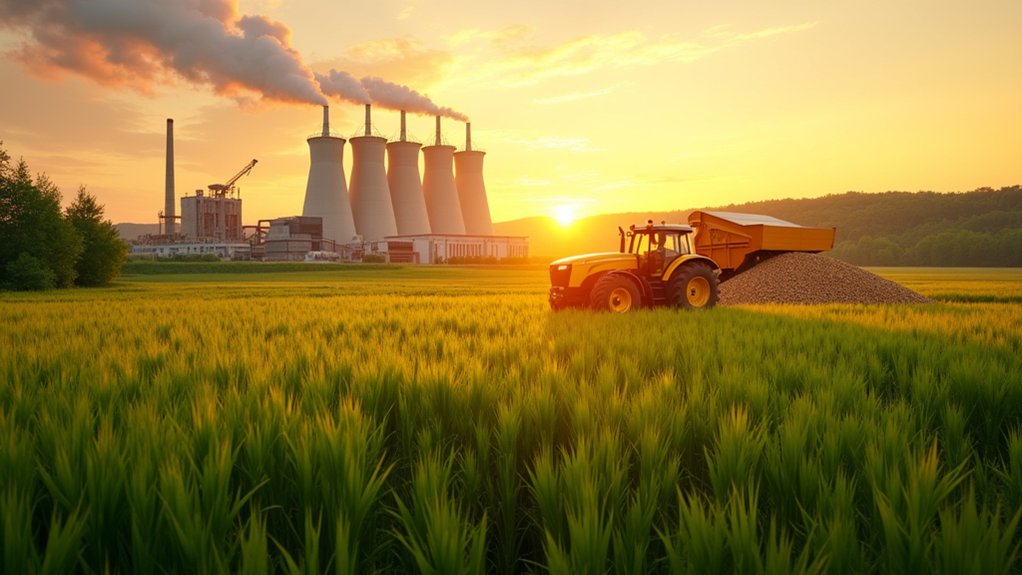Is biomass energy renewable?
Curious about whether biomass energy is truly renewable? You’re not alone. This topic often ignites discussions, especially given the diverse methods of production and usage. Understanding what makes biomass energy sustainable is crucial for ensuring it’s part of a responsible energy future. Before forming an opinion, let’s explore five practical tips that could change your perspective on biomass energy.

For those interested in technology, apps, smartphones, and software, it’s essential to consider how renewable energy, like biomass, can power innovations in these fields. Biomass energy not only helps in reducing carbon footprints but also supports the tech industry’s shift toward more sustainable practices. If you’re keen on staying updated with the latest in tech, understanding the role of biomass energy in this ecosystem is vital.
As you navigate through the evolving world of technology, keeping an eye on renewable solutions like biomass energy can offer fresh insights and opportunities. With the tech industry increasingly leaning towards greener alternatives, biomass energy stands out as a promising avenue worth exploring.
Understanding how biomass energy is produced
When diving into the world of biomass energy, you’ll discover a fascinating process that starts with organic materials such as wood, crop residues, or animal waste. Biomass energy production involves transforming these materials using cutting-edge technology like combustion, fermentation, or anaerobic digestion. These advanced methods allow you to release the stored chemical energy within the biomass, converting it into heat, electricity, or fuel. By tapping into this technology, you can efficiently harness nature’s energy, providing sustainable solutions for various applications. Biomass energy is an innovative way to integrate eco-friendly practices into our tech-driven world, aligning seamlessly with modern energy demands.
Factors that make biomass a renewable resource
Biomass stands out as a renewable resource because it originates from living or recently living organisms. This makes it a vital player in the renewable energy sector.
By understanding the natural growth cycles, like planting new trees or crops, we can continually replenish biomass resources. As long as we manage these resources responsibly and balance what we use with what we regrow, biomass remains a sustainable option.
This cycle ensures that we can meet our energy needs without permanently depleting natural reserves. Biomass, as a renewable resource, holds significant potential in the world of technology and energy solutions, offering a sustainable alternative to traditional fuels.
Common sources of biomass energy
Biomass energy is gaining traction as a sustainable power source, thanks to its diverse origins. In the tech world, this renewable energy is transforming the way we think about power generation. From wood and forestry residues to agricultural waste and animal manure, biomass energy harnesses various materials to produce heat, electricity, and biofuels.
Energy crops like switchgrass and miscanthus further expand its potential.
Biomass energy is particularly appealing in the technology sector, where efficiency and innovation are paramount. By integrating biomass energy into smart grids and advanced apps, companies can enhance energy solutions for smartphones, software, and other tech gadgets.
As the demand for greener energy solutions rises, biomass energy offers a versatile and eco-friendly alternative for meeting diverse tech-related energy needs.
Environmental impact of biomass energy use
Biomass energy is often seen as a renewable alternative to fossil fuels, but its environmental impact is more complex. While sometimes described as “carbon neutral,” burning wood and other biomass releases significant CO₂, and reabsorption through regrowth can take decades. Large-scale production may also cause deforestation, biodiversity loss, soil degradation, and competition with food crops, while requiring high water use and creating risks of pollution. In some cases, biomass can even emit more carbon dioxide than coal, raising concerns about its climate benefits.
On the other hand, when managed sustainably, biomass can reduce landfill waste, cut methane emissions, and support rural economies. Using agricultural residues, forestry byproducts, or organic waste offers a more sustainable pathway compared to dedicated energy crops. The true environmental impact of biomass energy depends on sourcing, land-use practices, and regulation, making careful management essential for it to contribute positively to renewable energy strategies.
Key considerations for sustainable biomass practices
Unlocking the potential of biomass energy involves understanding its environmental impact and implementing responsible practices. To ensure this renewable energy source remains sustainable, start by sourcing biomass from sustainably managed forests or using agricultural waste. This approach prevents deforestation and soil depletion, which are critical concerns in the biomass energy sector.
Additionally, monitoring emissions is essential to minimize air pollution, ensuring biomass energy remains eco-friendly. Prioritizing local feedstocks is another key consideration, as it reduces transportation impacts and aligns with sustainable biomass practices.
Conclusion
It’s important to know that biomass energy is renewable when managed correctly. To ensure you’re on the right track, choose local and responsibly sourced feedstocks for your biomass energy solutions. Keeping an eye on the environmental impacts of biomass energy is crucial. Prioritize agricultural waste and back sustainable practices to maximize the benefits of biomass energy. By following these tips, you’ll help ensure that biomass energy truly supports a cleaner, more sustainable future. Make informed decisions, and you can enjoy renewable energy that’s both eco-friendly and efficient for your community.